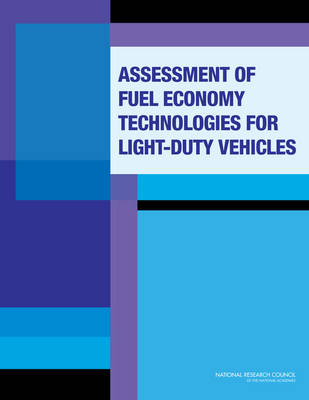
Assessment of Fuel Economy Technologies for Light-Duty Vehicles
National Academies Press (Verlag)
978-0-309-15607-3 (ISBN)
According to its estimates, adopting the full combination of improved technologies in medium and large cars and pickup trucks with spark-ignition engines could reduce fuel consumption by 29 percent at an additional cost of $2,200 to the consumer. Replacing spark-ignition engines with diesel engines and components would yield fuel savings of about 37 percent at an added cost of approximately $5,900 per vehicle, and replacing spark-ignition engines with hybrid engines and components would reduce fuel consumption by 43 percent at an increase of $6,000 per vehicle.
The book focuses on fuel consumption—the amount of fuel consumed in a given driving distance—because energy savings are directly related to the amount of fuel used. In contrast, fuel economy measures how far a vehicle will travel with a gallon of fuel. Because fuel consumption data indicate money saved on fuel purchases and reductions in carbon dioxide emissions, the book finds that vehicle stickers should provide consumers with fuel consumption data in addition to fuel economy information.
Table of Contents
Front Matter
Summary
1 Introduction
2 Fundamentals of Fuel Consumption
3 Cost Estimation
4 Spark-Ignition Gasoline Engines
5 Compression-Ignition Diesel Engines
6 Hybrid Power Trains
7 Non-Engine Technologies
8 Modeling Improvements in Vehicle Fuel Consumption
9 Application of Vehicle Technologies to Vehicle Classes
Appendixes
Appendix A: Committee Biographies
Appendix B: Statement of Task
Appendix C: List of Presentations at Public Committee Meetings
Appendix D: Select Acronyms
Appendix E: Comparison of Fuel Consumption and Fuel Economy
Appendix F: Review of Estimate of Retail Price Equivalent Markup Factors
Appendix G: Compression-Ignition Engine Replacement for Full-Size Pickup/SUV
Appendix H:Other NRC Assessments of Benefits, Costs, and Readiness of Fuel Economy Technologies
Appendix I: Results of Other Major Studies
Appendix J: Probabilities in Estimation of Fuel Consumption Benefits and Costs
Appendix K: Model Description and Results for the EEA-ICF Model
1 Front Matter; 2 Summary; 3 1 Introduction; 4 2 Fundamentals of Fuel Consumption; 5 3 Cost Estimation; 6 4 Spark-Ignition Gasoline Engines; 7 5 Compression-Ignition Diesel Engines; 8 6 Hybrid Power Trains; 9 7 Non-Engine Technologies; 10 8 Modeling Improvements in Vehicle Fuel Consumption; 11 9 Application of Vehicle Technologies to Vehicle Classes; 12 Appendixes; 13 Appendix A: Committee Biographies; 14 Appendix B: Statement of Task; 15 Appendix C: List of Presentations at Public Committee Meetings; 16 Appendix D: Select Acronyms; 17 Appendix E: Comparison of Fuel Consumption and Fuel Economy; 18 Appendix F: Review of Estimate of Retail Price Equivalent Markup Factors; 19 Appendix G: Compression-Ignition Engine Replacement for Full-Size Pickup/SUV; 20 Appendix H:Other NRC Assessments of Benefits, Costs, and Readiness of Fuel Economy Technologies; 21 Appendix I: Results of Other Major Studies; 22 Appendix J: Probabilities in Estimation of Fuel Consumption Benefits and Costs; 23 Appendix K: Model Description and Results for the EEA-ICF Model
| Verlagsort | Washington |
|---|---|
| Sprache | englisch |
| Maße | 216 x 279 mm |
| Themenwelt | Technik ► Elektrotechnik / Energietechnik |
| Technik ► Fahrzeugbau / Schiffbau | |
| ISBN-10 | 0-309-15607-6 / 0309156076 |
| ISBN-13 | 978-0-309-15607-3 / 9780309156073 |
| Zustand | Neuware |
| Haben Sie eine Frage zum Produkt? |
aus dem Bereich


